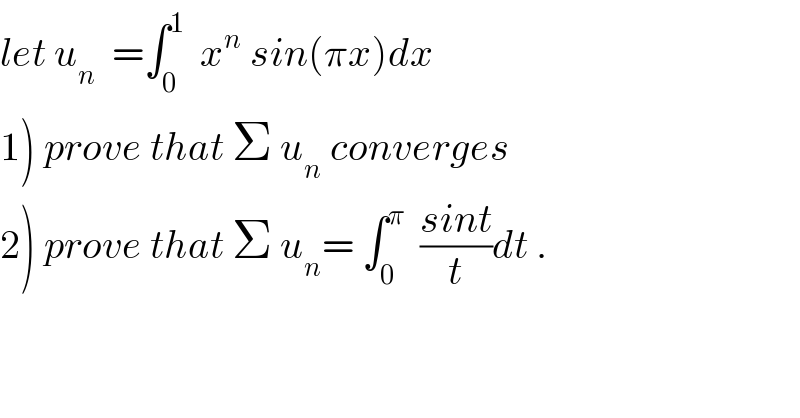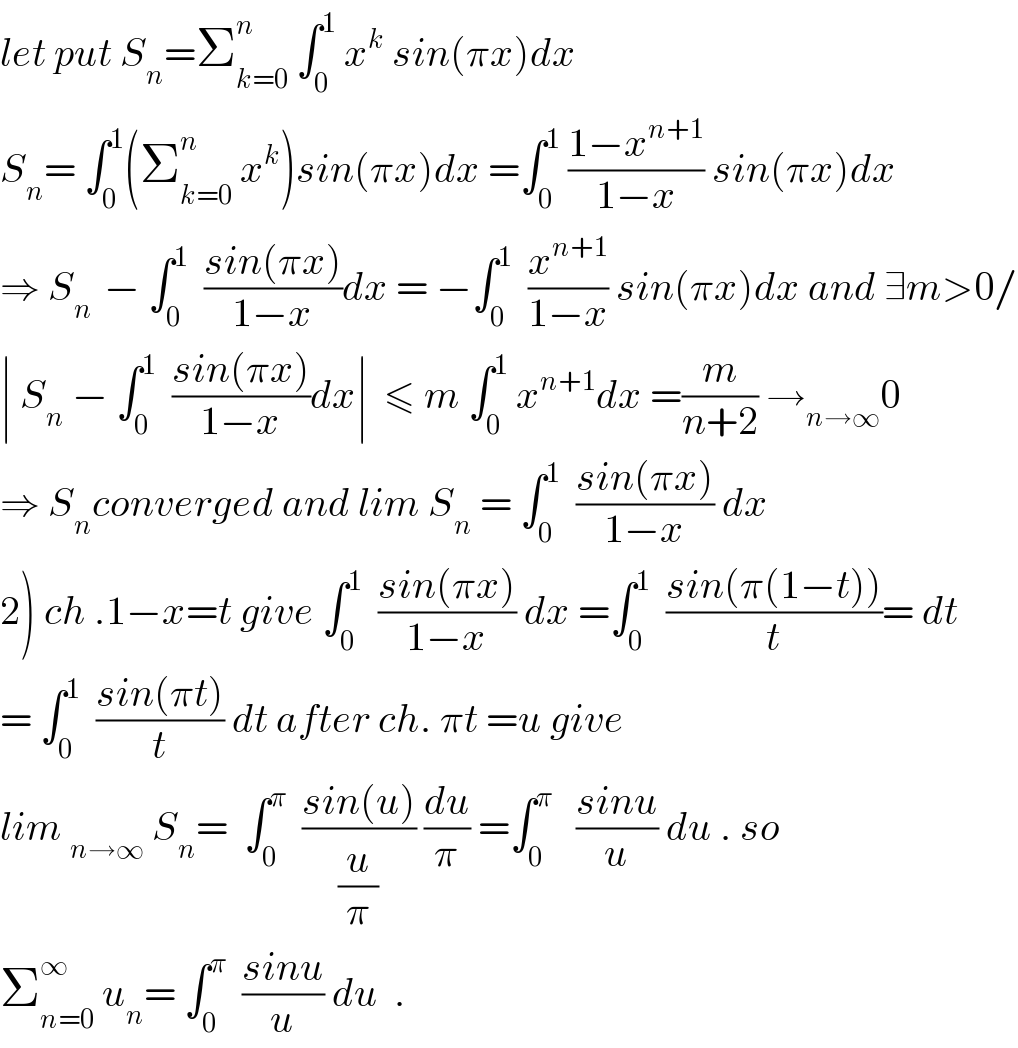
Question and Answers Forum
Previous in Relation and Functions Next in Relation and Functions
Question Number 32042 by abdo imad last updated on 18/Mar/18

Commented by abdo imad last updated on 20/Mar/18

| ||
Question and Answers Forum | ||
Previous in Relation and Functions Next in Relation and Functions | ||
Question Number 32042 by abdo imad last updated on 18/Mar/18 | ||
 | ||
Commented by abdo imad last updated on 20/Mar/18 | ||
 | ||